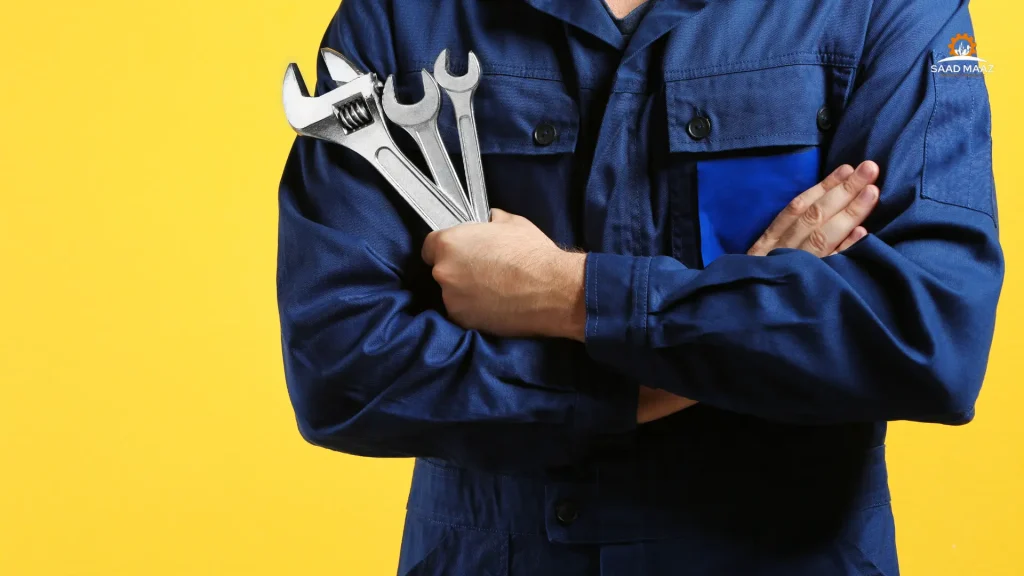
- March 1, 2024
- By admin
- AC Repair Services
The in-home debate of DIY Repairs vs Professional Help remains a hot topic in home maintenance and repair. Choosing between tackling projects through DIY efforts or enlisting professional assistance hinges on several critical factors, including cost, time, expertise, and the specific nature of the task.
This comprehensive exploration aims to delve deep into the nuances of DIY repairs and professional services. Doing so provides homeowners with the insights needed to make informed decisions that best suit their individual circumstances and ensures the longevity and safety of their homes.

Understanding DIY Repairs
DIY repairs involve individuals personally undertaking maintenance or fix-up tasks, relying on their skills, research, and resources available. This approach is often driven by the desire to save money, the satisfaction of completing a task independently, and the opportunity to learn and acquire new skills.
Advantages of DIY Repairs
- Cost Savings: DIY projects typically save on labor costs, as you only pay for materials.
- Learning Opportunity: Engaging in DIY repairs can enhance your skill set and knowledge base.
- Flexibility: You can work on the project at your own pace and schedule.
Challenges of DIY Repairs
- Risk of Mistakes: Without professional training, the risk of errors—and the subsequent costs to rectify them—can be high.
- Time Consumption: DIY projects can consume more time than anticipated, especially for those learning as they go.
- Safety Concerns: There’s a risk of injury or damage to property if the proper tools and safety measures are not employed.
Professional Approach
Hiring professionals offers the expertise and experience of individuals or companies specializing in specific repair or maintenance tasks. This path is often chosen for complex projects, when specialized tools are required, or when a high-quality outcome is non-negotiable.
Advantages of Professional Help
- Expertise and Experience: Professionals bring years of training and experience, ensuring high-quality work.
- Time Efficiency: Experts can complete tasks more quickly due to their skills and understanding of the job.
- Warranties and Guarantees: Many professionals offer warranties on their work, providing peace of mind.
Drawbacks of Professional Help
- Cost: Professional services include labor costs, which can be significantly higher than doing it yourself.
- Scheduling: You’re at the mercy of the professional’s schedule, which might not align with your immediate needs.
- Less Personal Satisfaction: Some homeowners derive satisfaction from doing the work themselves, which is lost when hiring out.
Evaluating the Scope and Complexity of the Task
The decision between DIY and professional help often hinges on the task’s complexity. Simple repairs, like fixing a leaky faucet or patching drywall, can be suitable for DIY with minimal risk. However, tasks requiring specialized knowledge or tools, such as electrical work, plumbing, or structural repairs, are better left to professionals to ensure safety and compliance with local codes.
Cost Considerations
Cost is a significant factor in the DIY vs. professional debate. DIY projects can reduce costs dramatically, but unexpected expenses can arise from mistakes or overlooked issues. While initially more expensive, professional services can save money in the long run by avoiding costly mistakes and ensuring the job is done right the first time.
Time and Convenience
Time constraints and convenience also play crucial roles. DIY projects seem like a good idea until the time commitment becomes clear. Busy schedules can prolong DIY projects, leaving tasks unfinished longer than comfortable. Conversely, professionals can often complete work more quickly, minimizing disruption to their daily lives.
Safety and Liability
Safety is paramount in any repair project. DIY projects risk injury or severe consequences if the work is done improperly, especially with electrical or gas-related tasks. Professionals are trained to handle these risks, and their work is often insured, reducing liability on the homeowner’s part.
Quality and Longevity of Repairs
The quality and longevity of the work performed can be a deciding factor. Professional work typically comes with assurances of quality and durability, backed by warranties. DIY repairs, while fulfilling, may not always stand the test of time if the homeowner lacks the necessary skills.
Learning and Personal Growth
For many, the appeal of DIY projects lies in the opportunity for learning and personal growth. Tackling a repair or maintenance task provides a hands-on learning experience and a sense of achievement that hiring professionals can’t match. This aspect is worth considering for those who value personal development and have the time and interest to invest in DIY endeavors.
Legal and Regulatory Considerations
Certain repairs and renovations require permits or must meet specific regulations, which can complicate DIY efforts. Professionals are familiar with these requirements and can ensure that all work is compliant, avoiding potential legal issues down the line.
Making the Decision
Deciding between DIY and professional help is a personal choice that depends on various factors, including the project’s complexity, cost considerations, time and convenience, safety and liability, and the individual’s confidence in their skills. Homeowners should assess each of these factors carefully, considering both the short-term impacts and long-term outcomes of their choice.
Conclusion
DIY repairs and professional services offer valuable paths to maintaining and improving a home, each with its own benefits and challenges. By thoughtfully considering the nature of the repair task, the costs involved, the time it will take, safety considerations, and the desired outcome quality, homeowners can make informed decisions that best suit their abilities, budgets, and goals. Ultimately, the right choice is the one that ensures the safety, efficiency, and comfort of your home environment, aligning with your personal preferences and resources.
